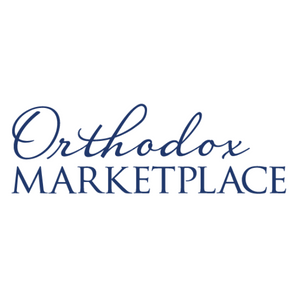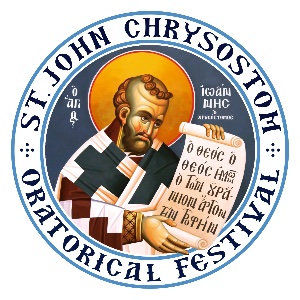Saint Barbara News
11/27/2022
Sunday, November 27
13th Sunday of Luke - Κυριακή ΙΓ’ Λουκά
Οrthros - Ορθρος... 8:30 a.m.
Divine Liturgy - Θεία Λειτουργία... 9:45 a.m.
No Sunday School
Altar Boy Workshop ... 11:30 a.m.
Coffee Fellowship following the Divine Liturgy
Monday, November 28
Athletics Practice - Προπόνηση Αθλητικών -
Volleyball - CT Sports Center, Woodbridge ... 7:30 p.m.
Varsity Basketball - CT Sports Center, Woodbridge ... 7:30 p.m.
Thursday, December 1
Greek Language School - Ελληνικό Σχολείο .... 4:30 p.m.
Greek Language School Pageant Practice - Grand Ballroom ... 5:00 - 7:00 p.m.
Saturday, December 3
Great Vespers - Μέγα Εσπερινός ... 6:00 p.m.
Reception in the Grand Ballroom following the Vesper Service
Sunday, December 4 - Βαρβάρα Μεγαλομάρτυς και Ιωάννης ο Δαμασκηνός
Feast Day of Saint Barbara the Great Martyr and John the Righteous of Damascus
10th Sunday of Luke - Κυριακή Ι’ Λουκά
Οrthros - Ορθρος... 8:30 a.m.
Divine Liturgy - Θεία Λειτουργία... 9:45 a.m.
Sunday School - Κατηχητικό Σχολείο ... 9:45 a.m.
Coffee Fellowship following the Divine Liturgy
Memorials:
11/27/2022
Memorials:
Virginia Galantis
Nicholas P. Papadopoulos
Konstantinos & Demetra Hajedemos
Trisagion:
Demosthenes & Angeliki Diamantes
Nikolaos Zikos
Stewardship 2022
11/27/2022
Financial Update
11/27/2022
Saint Barbara General Fund
2022 Financial Summary
Total Annual Budget: $718,000*
Total Income: $643,326
Total Expense: $647,495
* Does not include mortgage payment of $19,053 a month
Light A Candle Program
“LIGHT A CANDLE” PROGRAM
As we continue to follow precautions and guidelines that due to COVID-19 you are invited to participate in the Candle Lighting Ministry.
Many parishioners have been expressing a desire to have candles lit inside the Church for them, or for their family, friends or prayers for the world.
If you prefer to mail a check, instead of making an online donation or Venmo, please make check payable to: Saint Barbara Greek Orthodox Church and mail to: 480 Racebrook Road, Orange, CT 06477.
Your donation will continue to support the ministry of the Saint Barbara Greek Orthodox Church of Orange, Connecticut. Thank you.
Online Giving Reminder
Saint Barbara Church’s online giving program makes it possible to make contributions of various kinds to Saint Barbara Church online. Our secure system allows you to conveniently make donations online. You can choose to make a one-time contribution or establish a recurring weekly or monthly contribution. Best of all, you don’t need to remember to write a check or bring your offering to church - it’s already taken care of! Payments can be made via checking account, savings account, credit card or debit card. Visit (https://bit.ly/STBDonations) to get started.










 One day only, November 28th, 2022, shop and receive 20% off sitewide. Find religious gifts and books for sale for you and your loved ones. Sale items include icons, prayer books, bibles, children’s books, Light & Life publications, and more. Mark your calendars!
One day only, November 28th, 2022, shop and receive 20% off sitewide. Find religious gifts and books for sale for you and your loved ones. Sale items include icons, prayer books, bibles, children’s books, Light & Life publications, and more. Mark your calendars!
 The Department of Religious Education (DRE) is pleased to announce the release of the 2023 St. John Chrysostom Oratorical Festival Topic Tips & Resources. Formerly known as ‘Topic Tips’ just for the youth participants, this year, the DRE has expanded it to ‘Topic Tips & Resources’ for participants, parents, mentors, GOYA advisors, and religious educators.
The Department of Religious Education (DRE) is pleased to announce the release of the 2023 St. John Chrysostom Oratorical Festival Topic Tips & Resources. Formerly known as ‘Topic Tips’ just for the youth participants, this year, the DRE has expanded it to ‘Topic Tips & Resources’ for participants, parents, mentors, GOYA advisors, and religious educators.